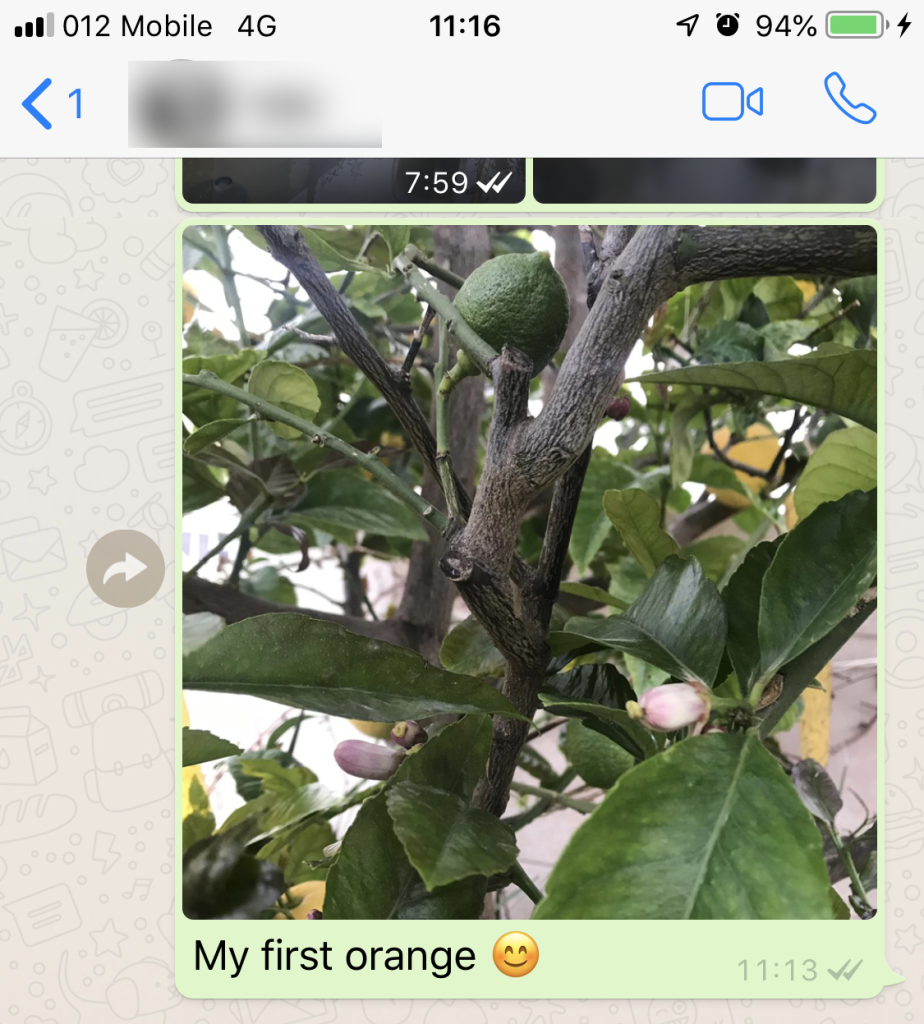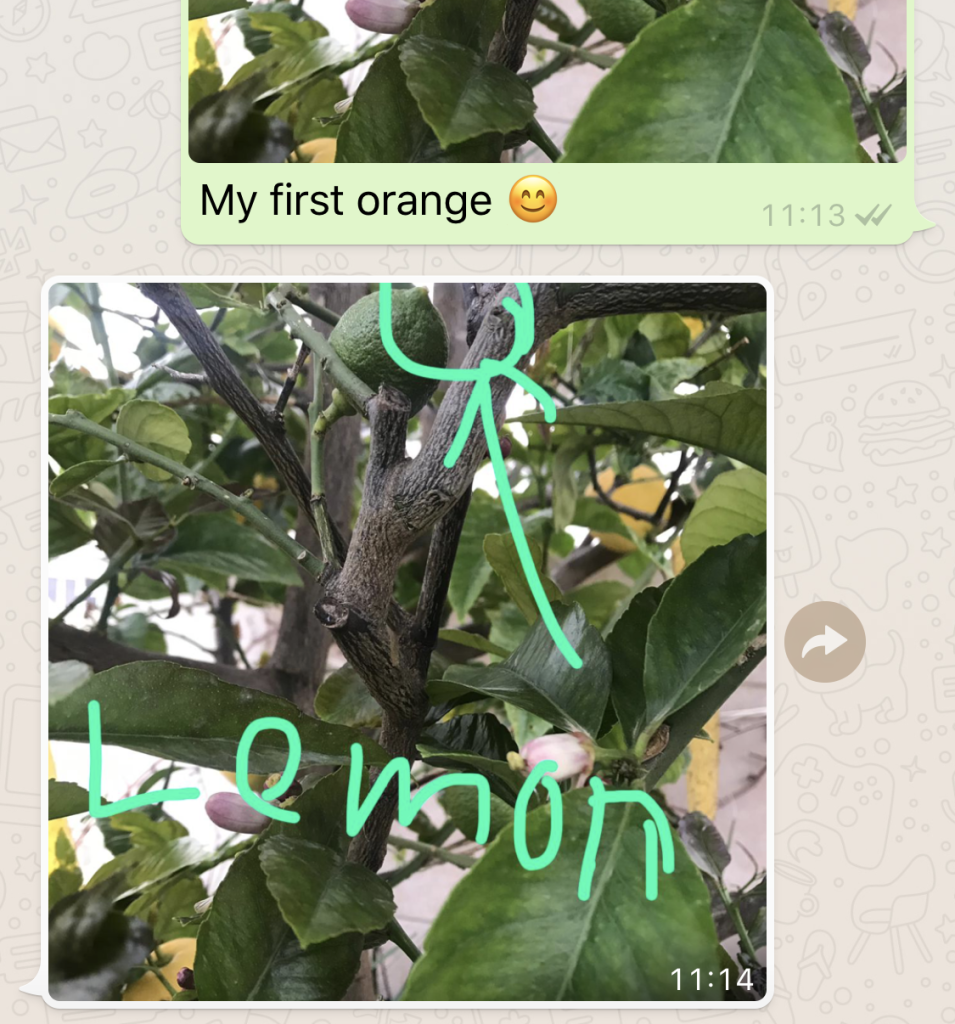2 years ago we built a garden on our roof. From that day on, I woke up every morning, took a deep breath of garden scents, and went to talk to my trees (I do that 😊).
Each morning, I thanked my trees for making my day and for bringing the bees and the hummingbirds to my roof. And as I was talking to them I would scan their leaves hoping to find that first orange.

My first orange
A day passed, a month passed… almost a year passed when one morning, as I was talking to my orange tree, I finally noticed a tiny orange!!! I took a photo and sent it to my friends telling them about my first orange.

a minute passed and I got a reply said… “ → lemon”.
WHAT?!##** a lemon? I looked at the picture, I looked back at my orange, and I couldn’t believe it. There was no mistaking that little, lemonish tip at the edge of my orange. How can an orange have a tip of a lemon?

The fact of the matter (don’t matter)
You see, I was sure I planted the orange tree on the right and the lemon on the left. And nothing, not even seeing that first lemon, could change that initial perception. I “knew” where the orange tree was, and based on that “knowledge” I was convinced I was seeing an orange.
You might think my brain would surrender at that moment, but no. I stood there on the roof and Googled “orange tree” and “lemon tree” and closely examined their images. In a last stand, my brain was fighting to maintain its current perception of the world. refusing to accept the evidence that what I believed wasn’t true. It resisted.
The reason we see orange trees even when they aren’t there
I wish my story about that orange tree was an anecdote but the truth is that I see oranges instead of lemons all the time. We all do!
Scientists call this phenomenon confirmation bias. Our brain’s tendency to confirm what we already know. To focus on “evidence” confirming what we currently believe while ignoring anything that might contradict us.
We evolved at a time when split-second decision meant eating dinner or being dinner. Our brains couldn’t afford “overthinking”. It couldn’t afford us going in the world always second-guessing our beliefs.
Imagine… a sabertooth approaching and you start thinking “Hmmm, I wonder if this sabertooth is dangerous?” (BAD system).
As a result, we’ve developed a system that prefers to always be on autopilot. Unless challenged, our brain will always process new inputs b[i]ased on what it already “knows” about the world.
But there is a simple, effective, way to battle confirmation bias and it starts with two simple and magical words.
Two magic words “I think”
Language has the magical ability to rewire our brain. A single word like “Yet”, has the power to shift a person’s mindset and unlock the potential of growth (“I’m not good at math [YET]”).
I found that adding “I think” to a sentence does wonders when it comes to confirmation bias. Instead of saying “We should focus on the US market” try “I think we should focus on the US market”. Instead of saying “This is the wrong direction” try “I think it’s the wrong direction”
These two magic words have the power of turning any truth into an opinion which has 2 main benefits:
- It conveys to everyone who is listening, including me, that what I’m saying is my SUBJECTIVE interpretation of the world.
- It shifts the speaker from confirmatory to exploratory mode. In other words, the fact that we are presenting a personal thought, rather than a fact, puts us on the defense, knowing we might be challenged. And that knowledge of potential challenge makes us think critically about what we are saying. It makes us consider multiple perspectives (And this is magic)

That’s BS! I will never confuse an orange for a lemon
By this time you are thinking that I’m just this weird dude that talks to his trees and that you are not susceptible to confirmation bias. The reason you’re thinking that is another proven bias called the blind spot bias that causes you to recognize the impact of bias on others and fail to see how it impacts you 🙂
What are the oranges in your life?